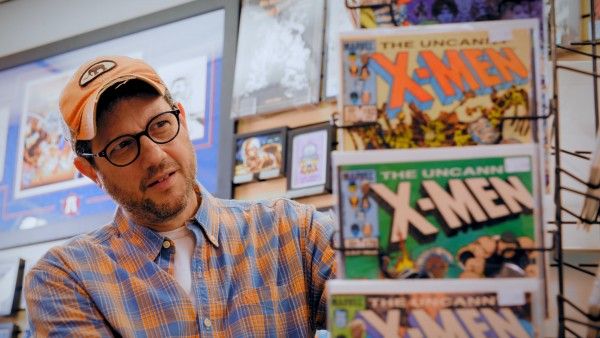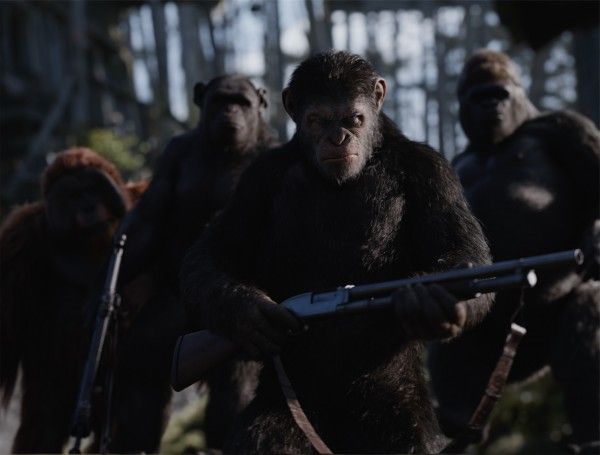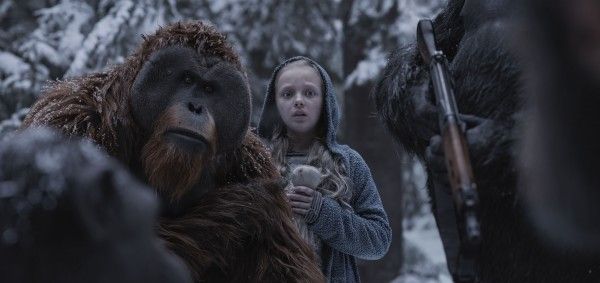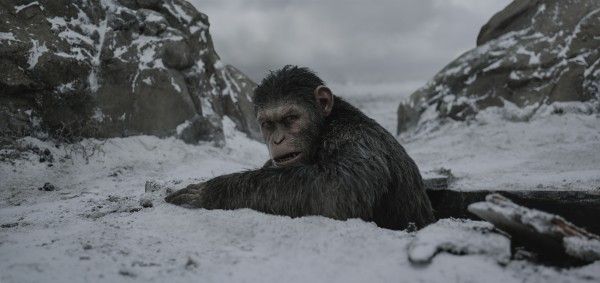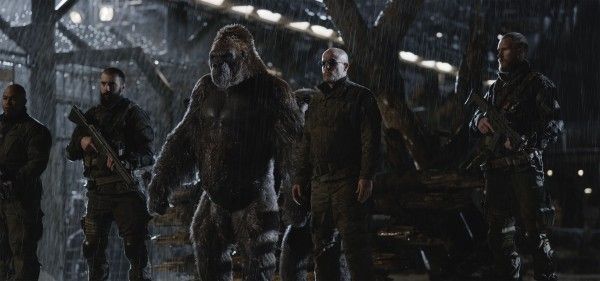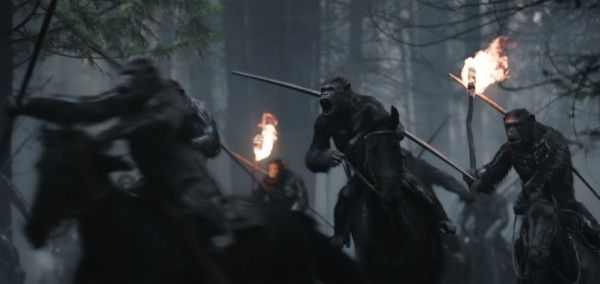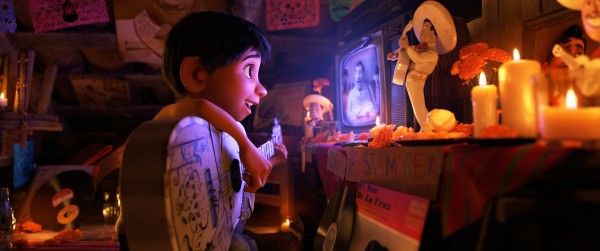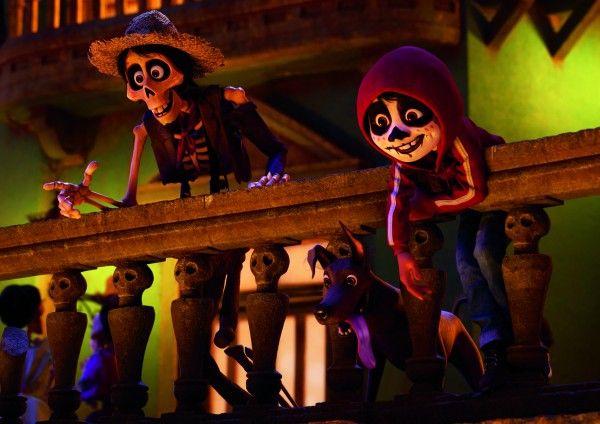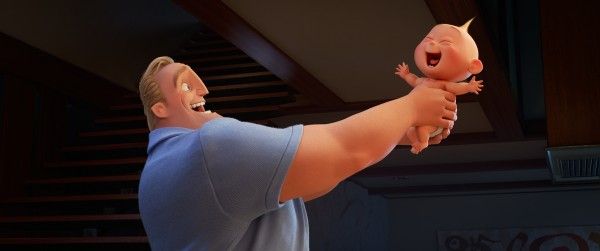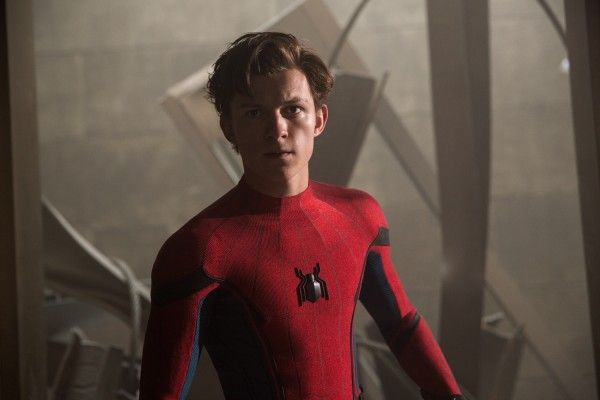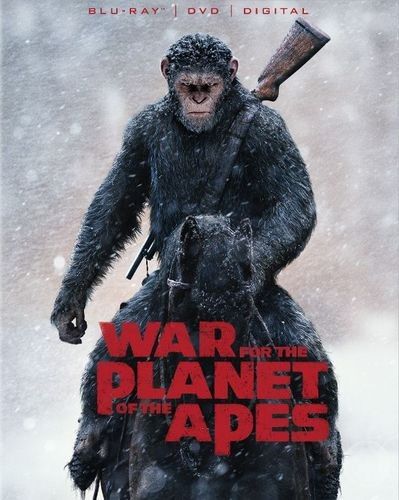When it comes to film composers, Michael Giacchino is a household name. With one Oscar under his belt (Up), a multitude of iconic themes in the heads of audiences (Star Trek, The Incredibles, Lost), and a wonderfully diverse filmography that swings from the bombast of Rogue One to the playfulness of Spider-Man: Homecoming, Giacchino is undoubtedly one of the most exciting composers working today. And while Giacchino’s oeuvre spans two decades, he may have turned in one of his best scores ever with this summer’s War for the Planet of the Apes.
Infusing the unsettling instrumentation of Jerry Goldsmith’s classic original Apes score with a more melodic and somber emotional undertone, Giacchino’s work on War for the Planet of the Apes runs the gamut from moving to terrifying. The composer improves on the stellar work he and director Matt Reeves did on Dawn of the Planet of the Apes and brings Caesar’s story arc to a thrilling, heartbreaking, and inevitable conclusion.
With Giacchino undoubtedly in the awards race for his outstanding work on War for the Planet of the Apes, I recently got the chance to speak with the composer at length about how the score developed, his process, the most challenging aspect of the film, and crafting emotional music. But Apes isn’t the only great score Giacchino composed this year, so we also discussed his incredibly different but equally terrific score for Pixar’s Coco and working on a music-centric film that also has original songs, as well as his delightful work on Spider-Man: Homecoming and his experience with Marvel Studios. Additionally, we briefly discussed Giacchino’s impending work on Incredibles 2 and Jurassic World: Fallen Kingdom.
I could have droned on for hours peppering Giacchino with plenty more questions, but as-is this conversation hopefully provides some insight into his process, how he approaches film composing, and how he juggles so many projects. And I must say, having interviewed Giacchino twice now he’s not only one of the most talented composers in the business, but also one of the nicest and most gracious.
Check out the full interview below.
Your score for War for the Planet of the Apes is absolutely one of my favorites of the year.
MICHAEL GIACCHINO: Oh, thanks.
So, congrats on that. It's so good.
GIACCHINO: Thank you. I loved that movie. I love that franchise, and I love working with Matt Reeves. It was nothing but fun.
It's fantastic, and I know on the press tour for Dawn, Matt was already talking about the ideas for the next movie that would become War so I was curious, when did you guys first start talking about the music and what were those initial conversations like?
GIACCHINO: Well Matt and I talk a lot because we're really good friends. So we're always talking about like you know, some stupid, geeky thing that we love, and we're talking about the films we're working on. I'm trying to remember, it was a couple years before it came out that we talked. We don't really talk music so much, we just talk feelings and emotions and what the characters are going through. It's mostly story. We always just talk story, and music never really enters into the picture. I'll just kind of do that on my own and then present something to him where I thought, "Okay, here's what we've been talking about" or "Here's what I felt when I saw the movie." By the time it's ready for me to write music to it, I've already been thinking about it for a couple of years and it's ready to go. So it's weird when you're working on things with your friends cause it's just sort of ... it's always around. It's not like you just get hired onto a film, you come in on the last eight weeks, you have to kind of figure it out. Most of the things that I work on are with people that I actually have relationships with outside of work.
Well I know that Matt had teased at that time kind of an Exodus, Moses-like story. Was that the story idea you guys were talking about and that you built a foundation on?
GIACCHINO: Yeah, definitely. Yep. He had a lot of ideas for that film and it was really all centered around that idea of turning Caesar into a much more mythic sort of character, a more historical character, if you will. So all those ideas were flying around really early on, before we got anywhere near the scoring stage.
Since you had that foundation, did you start writing the music early while you were talking about the ideas, or when you got a script? Or do you just wait until filming is finished and then you kind of dig into it?
GIACCHINO: Yeah. I use that time to kind of let it sit in the back of my head and do whatever it has to do. Go about my life in a normal way. You know, I didn't write anything early. I just waited until I saw the movie, the first assembly of the movie, for the first time, which I think the version I saw was almost three hours long, you know. So I do see an early cut of it prior to it really being shaped. It was all being ... I really just sat down and wrote out all of the thematics for it, the new ideas, real shortly after seeing the film, within days actually.
Oh, wow. Well, the score for Dawn has this kind of foreboding, almost menacing quality to it because of the Koba of it all, and then War feels almost epic and kind of more Western-tinged in way. I know this wasn't your first sequel, but what did you decided you wanted to do differently this time around, given another go at another Apes movie?
GIACCHINO: Well, the good news was it was so different tonally, in so many ways, especially for the main character of Caesar. You had a character who was, prior to this event, a more optimistic someone who wanted to make things work out. Someone who wants both sides to be able to live together, who is constantly pushing for that at the same time he was protecting his people. But always with the hope that they'd be able to live together in peace. And of course that all was shattered in the second one we did, the third in the franchise. When the Colonel comes in and of course takes out his family. Now you're forced into a situation where anger takes over everything, and Caesar is dealing with this anger and this obsession with getting back at the Colonel, it's almost as if too much had happened to him and he just finally broke and he became the simplest of emotions, which is just anger. And besides, behind the anger is always sadness. And I mean, you can see that in the score too because much of the score presents the sadness while Caesar is upfront presenting anger, but the truth is behind all that anger was a lot of sadness that's really what caused it. And it takes awhile for him to get the root of that anger and accept that sadness, and that empathy and to kind of allow it to surface again. But that was his whole journey in this film, which is very different journey than it was in Dawn.
Yeah, it's a wildly emotional film. I don't think people expect to think "Oh, that Apes blockbuster is gonna be one of the most moving films of the year," but it really is.
GIACCHINO: No, I think you're right. I think you're right and I feel like it's, for me anyway, it's one of the most emotional films I've worked on, and I've worked on a lot of those kinds of movies. Between Up and even tons of episodes of LOST got very emotional.
Oh yeah.
GIACCHINO: But, this was an exploration into character that I feel like I haven't done yet, and Matt is so good at that. It was just a pleasure to do.
That is kind of a throughline through your work of just kind of making people cry their eyes out. Do you have a sense of when you're writing that kind of music? Does it move you?
GIACCHINO: It always moves me. It has to, or else the music isn't going to feel right. It won't be truthful. So if it feels that way to you, that means it felt that way to me. And I'm just sort of passing that on to you, the viewer. It always starts with me exploring, "How did this film make me feel? How did the story make me feel?" And I have to stay with that, I can't just approach something and go, "What kind of movie is this? A sad movie? Okay, I'm going to write sad music." It doesn't work that way; it's always me exploring what really is going on in this story and what are the true emotions. In very many ways, like an actor, you have to take on the emotions of the film in order to give a truthful performance of what the story is telling you.
For sure. So what was your reaction to seeing that Toy Story 3 ending cut to the LOST theme that is just devastatingly emotional?
GIACCHINO: (Laughs) Yeah, I thought that was interesting. That was a while ago. Yeah I remember seeing that, that was really interesting. You know the internet's a crazy place to hang out because it's insane to see so many people doing so many creative things all over the map. It's fun to see them mix and mash their own versions of things. Sometimes they put in my music, sometimes they take out my music (laughs). So it's all—it's always different. You never know what you're gonna get.
Yeah, yeah. Moving back into Apes, something I loved about the score is the Jerry Goldsmith influence is right there, front and center, and it's delightful. But it still absolutely feels like a Michael Giacchino score. How did you balance tipping your hat to that iconic work while also ensuring it was something that was completely fresh and new?
GIACCHINO: You know, I don't think too much about it when I'm writing. I know I grew up with those films, I grew up with Jerry's work. I loved what he did for the original, so it's just sort of in me. So if I can sprinkle a bit of that into what we're doing just to have that connective idea between the films that were made in the 60s and the ones that we're doing now, it just felt like the right thing to do. You know, I actually have a few of the instruments that Jerry used on the original Planet of the Apes.
Oh, wow.
GIACCHINO: And I used those in the score. I used a ram's horn that was used, I also used these mixing bowls with Emil Richards, who was the percussionist in my orchestra who also happened to be the main percussionist in Jerry's orchestra back in the day. So Emil's been around a long time and I've worked with him on almost everything. But he gave me the percussion instruments that he used on those first couple movies. So that was kinda fun to have some of that stuff in there, but to also then take it somewhere else, and what else can we add in to expand this textural universe? The one thing about the Dawn and War Apes movies are, there is a lot of that sort of atonal or 20th century style, or very sort of out there orchestration in it. But at the same time, there's also very melodic music. That's something you didn't really get in the first Planet of the Apes. There was no melodic throughline in that story. It was all very strange and atonal and weird and it worked for that, because Taylor was a stranger in a strange land and he was surrounded by it. It felt right for me to start to take the stories into a more melodic, emotional place in order to say, these guys are humanizing. These apes, we're watching them go from this primate that we know from the zoo into something that could be our next door neighbor. I wanted to humanize them and not just say that they're beasts or they're wild animals, because they are far more than that. So it felt right to take it to a place where the music can also be emotional and thematic and melodic for our main character of Caesar.
Yeah, exactly. I think you hit that balance spot on. Because you have the emotional throughline and you have the more traditional score but then the flourishes of the Goldsmith-type stuff reminds you that we're on a path towards inevitability here, and you kind of have in the back of your head that original Planet of the Apes, where the apes had become the masters at this point.
GIACCHINO: Right. Exactly.
Was there one scene or sequence that was particularly challenging or theme on this one?
GIACCHINO: Probably the hardest one to do was the conversation between the Colonel and Caesar. It was a very long scene and it's very dialogue driven, so to make sure that I was not getting in the way of that, and I wasn't overstepping my bounds. I wanted to make sure you could watch this scene without even really feeling what I was doing. That was probably the toughest, because those long scenes are always ... and in the way it was written, it was going all over the place too. It was heading in one direction and then the Colonel will take it in another, Caesar would take it in another, so you had to kind of definitely figure out what the right emotions were at the exact right time that you could switch or change or shift. So that was probably the toughest one. You would think that a scene, maybe one of the big action scenes or something would be more difficult to do, but really that simple dialogue scene was probably the harder thing to do in the film.
I also wanted to ask about Coco, which is just incredible.
GIACCHINO: Oh, thanks.
And so completely different, but you can feel the authorship there. I know the process on a Pixar movie is much longer than live-action, but just kind of looking at your IMDb page and seeing what you were working on at the time, was it kind of exciting and refreshing to just kind of go and dive headfirst into the world of Mexican music?
GIACCHINO: Oh, yeah. It's always wonderful to do something where you can just feel like you're not 100% at home and you have to learn a few new things. I always love that. And I've always loved Mexican music; it was really something I listened to as a kid. My dad had a great record collection which included some music from Mexico and so I always loved it. But I didn't know as much about it as I thought I did once I got on board this project. I was able to work with a couple of really great specialists, Camilo Lara and Germaine Franco who both knew so much about the music of Mexico and the different styles. It was like going to a masterclass of Mexican music for me.
So I ate it up, I loved it. And it was just, you know, again, I just love writing in that style of very thematic and lyrical and it feels very storytelling, the style of music that comes out of Mexico. It's always about stories and these beautiful musical stories that are being told. So to be able to do that for a film like Coco was great. And we went to great, great pains to make sure whatever we did, it felt authentic, it felt like it was born right out of the country. The thing I didn't want to do was to do a standard orchestral sort of score for a film and then throw in a couple of indigenous instruments just to say, "Hey, see? We're in Mexico." I wanted the entire thing to feel real. I wanted the entire thing to feel, again, like it was just born out the country.
What’s really fantastic about it is a lot of your scores are very piano driven or you can feel that melody in the piano, and I loved hearing that translated to the guitar.
GIACCHINO: Yeah, it was really fun. There were a lot of guitars. We worked with some amazing guitar players and that was a great experience to be able to put that instrument front and center in a film that was really all about music. Especially about a kid who wants to play guitar and sing.
When you're working on a film about music, I imagine there might be a temptation to pack the movie wall to wall with score. What were the conversations with Lee Unkrich like about finding that balance and finding the right spots where score would go, where an original song would go, where you need to pull back a bit?
GIACCHINO: Well, I mean, I'm always talking about where do we not need music. More often than not, I'm worried about, where shouldn't we have music? Because the tendency is just to put everything everywhere all the time in a lot of movies. You end up just numbing the audience when you do that and it's not the best way to tell a story, you know? A great story has ups and downs and it's quiet, then it's loud. It's silent, then it has some sound. You know? It's all over the place, and Lee was really smart and on board with all of that. I feel like both of were really watching out for, where can we keep some space open? So that when the music does come in, it means something. And we also separated the idea that we weren't going to include the melodies of these songs in the score. We wanted to score to represent the characters and the emotions and all of that, and the songs to just be on their own. Especially 'Remember Me,' which in my mind is the umbrella by which everything, all the other songs live under. That's a very important song in the film and it was written by Bobby and Kristen Lopez, who did an amazing job on that song. It's one of my favorite things in the film. So we all sort of were creating our own little space with our own music so that the film didn't get too homogenized and the score would speak solely for the emotional aspect of the film, and the songs would do their thing. The characters would sing them and represent that these characters had with each other. So there was a lot of discussion about it, but in the end, it also felt like it just sort of fell into place very easily.
That’s what's so refreshing about it is that in a lot of these musicals, the score is just kind of echoing melodies that you hear in the original songs throughout. And so it just kind of fades into the background. But this one, both the score and the original songs are front and center and both have their own identities but complement each other extremely well.
GIACCHINO: Yeah, and that was something that I think we all wanted, and Lee especially wanted from the beginning. So it was nice to be able to do that and not feel tied to anything else.
Well, speaking of Pixar, I cannot wait for Incredibles 2. Have you started the scoring process on that one yet?
GIACCHINO: I just was up there two days ago to talk about the beginning of that whole process. So I haven't actually written anything yet, but you know, it's on the horizon. It'll be very soon, I gotta dig in real soon.
Are you going to be echoing the same themes from the first film in terms of the tone of the score, or do you have ideas for how to expand this one a bit?
GIACCHINO: Well, I can't give too much away, but I can tell you that it'll feel like the same universe but we'll go a couple new places here and there and I think you'll be happy. It's an incredibly fun, fun, fun follow up. So I'm looking forward to seeing what comes out of it all. When I'm going into these things, I don't always know in my head how it's going to end up sounding or where I'm gonna go with it, I just sort of allow it to take me there. So the truth is, I don't have too much of an answer for you other than it'll definitely feel like The Incredibles.
And as for Jurassic World: Fallen Kingdom, I mean we got the idea through the hiring of J. A. Bayona that it'd be a bit of a darker film and they said that as well, but it very much looks like it might have this kind of thriller/horror aspect. Is that something that's kind of reflected in the score?
GIACCHINO: Well, again, haven't even written a note of music for that one yet either (laughs).
Fair, totally fair.
GIACCHINO: But I have seen it, and yes. I love J. A., he and I have known each other for many years, we've been friends and we've been hoping to work on something together so this, I think, is gonna be a really fun project to do with him. I love his storytelling sensibility and I'm excited to take the storytelling and the franchise somewhere new and different and perhaps that is darker and more moody and more suspenseful. But again, I gotta wait and see where it takes me, but looking forward to that one too.
I noticed you said in your Reddit AMA you'd like to do a ghost story at some point and I'd love to hear your score for another horror film.
GIACCHINO: I think that'd be fun, yeah. I haven't done a ghost story. I did work with Matt Reeves on Let Me In, I loved that movie. But I think that it would be fun to do one day, a really cool ghost story.
I’ve been curious, I know that Rogue One was a stressful process for you, writing an entire score in four and a half weeks. But once you came out on the other end of that one, did you come away with any kind of new insights or ideas about your process or was it more just kind of celebrating that you made it out alive?
GIACCHINO: You're always just celebrating you made it out alive (laughs). You know, I feel like I leave every single project feeling like I didn't quite do as good as I wanted to do on it, and I have to just look forward to the next one to try and do better. Because you never quite hit the heights you have in your head for what you're going to do. But you learn something each time, which is important. I feel like, so far with every film, especially with Coco and Apes I felt like I learned a lot through that one and I honestly am just looking forward to what I can learn from the next ones.
Well I think your score for Spider-Man: Homecoming was terrific as well. How's the Marvel experience been for you? You've done two now, and it seems like they're kind of hitting their stride now in terms of getting really strong themes into these films that are becoming memorable.
GIACCHINO: Yeah, no, that's been great. It was wonderful to be able to do the new logo for them and create—for me, I just wanted to create something that when you heard it, you were like a little ten year old kid getting excited for what was about to unfold in front of you. That was the whole idea behind that, for me anyways. That's what I would want if I was sitting down to see one of those movies. And they've given me a lot of freedom to just kind of go and do what I want to do, which has been wonderful. Working with Kevin Feige has just been a joy. He is definitely one of those people that would've been in my band of filmmakers if he had lived in my neighborhood when I was growing up, you know? I could imagine having spent hours and hours and hours discussing comic book theories and characters with him growing up. So it's fun when you are working on these films and you get partnered up with people that you can really connect to, that you really feel a kinship to. And he and the people at Marvel, definitely I feel that. They're a lot of fun to work with and it's always just this—it's never easy work. None of this is easy work, it's always hard, but it's always fun as well, so yeah, I love working with those guys.
Yeah, it sounds like Feige's a bit of a music fan as well. I talked to Brian Tyler and he said they played a game where he would hum a theme and Feige would try and guess what the theme was from or what movie it was from.
GIACCHINO: Yes, he is, he loves film soundtracks. He pretty much listens to them all the time. He grew up, like I did, listening to them. So he's really into them, he's really smart about it, he knows almost every score you can name and it's—he's quite smart about all that.
I did want to ask, I feel it's been a pretty great year for movie music overall. Are there any scores this year that particularly stood out to you, or you were really impressed by?
GIACCHINO: You know what, there's a double-edged sword to having a lot of work to do. It's great to have a lot of work and keep yourself busy, but the downside is, you don't get out much to see too much. So I'm now in the phase where I'm starting to try to see everything that I missed this year. So, you know, that's my job for the next month. Is to catch up with the rest of the world and see what's been going on.
War for the Planet of the Apes is now available on Blu-ray and Digital HD. Coco is currently playing in theaters everywhere.


